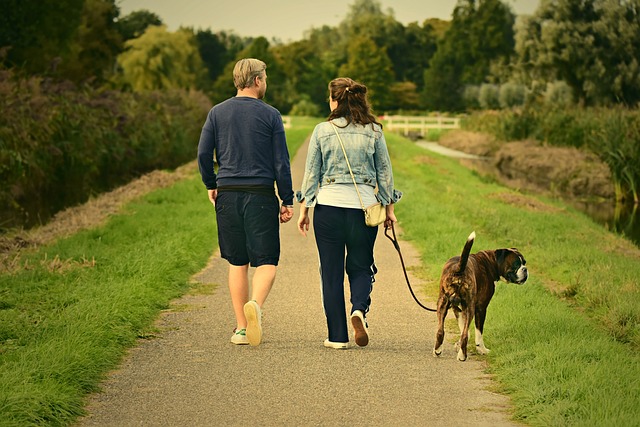
Benefits of walking in the outdoors
Several of our recent projects have included walking as a core feature. Evaluation of their contribution towards wellbeing has been interesting and enjoyable for us. Both Paths to Wellbeing for Ramblers Cymru and Canals, Communities and Wellbeing for a partnership led by Powys County Council have  been evaluated recently.
been evaluated recently.
It got us thinking about walking in the outdoors, so we asked Simba Chabarika, one of our associates, to write a blog post about the benefits of walking. This is what he had to say.
Who doesn’t want to live a long and healthy life? And what would be the cost? Nothing. All you need is walking, yes, just walking regularly, especially in the outdoors. It improves your health, energy levels, well-being and gives you longevity.
According to the NHS, people who lead an active lifestyle by engaging in regular physical activity, are more likely to live longer and are less likely to develop serious illnesses and health conditions [1]. The director of the Centre of Disease Control and Prevention (USA), Dr Thomas Frieden says walking (along with other forms of physical activity), is “the closest thing we have to a wonder drug.” [2]
The UK Chief Medical Officers’ guidelines recommend 150 minutes or more a week of moderate physical activity for adults to achieve general health benefits essential for good health. And walking, exploring the great outdoors, is one of them.
Walking in the outdoors has many health, economic and social benefits. Being in the natural environment is enjoyable and can also be a great mood-booster to people’s wellbeing. Studies have shown that lack of physical activity contributes to both physical and mental health conditions which could be prevented [3].
Moreover, walking is a free mode of transport and recreation. It is accessible to many people and it can play an important role in improving health as it helps people to be more active in their daily lives. It is also one of the simplest, safe and cheapest forms of all health habits. It enables you to interact with the environment and connect with the beauty of nature – something you don’t get in your daily hustle and bustle of life. Our modern lifestyles together with urbanization, leave us with little time for contact with nature and one of the remedies is found in walking. No wonder some experts have suggested that the next time you visit your GP, don’t be surprised if they give you a prescription for walking!
The Covid-19 pandemic lockdowns left people with more time at their disposal and many discovered the joy of discovering beautiful scenery walking in the outdoors. Rather than watch television all day, some put walking into their daily routine. Statistics show that adults in the UK spend 16 times longer watching TV than being physically active while 38% of children spend less than an hour a day outdoors with 23% spending more than 14 hours a week in front of a screen [4].
According to Ramblers, a British charity which encourages people to be more active through walking, a study of 334,000 people by researchers at the University of Cambridge, found that 20 minutes of walking a day, reduced the risk of premature death by a third. Yet Public Health England has found that 4 in 10 middle-aged adults – 6 million Britons – cannot manage even one brisk 10-minute walk a month, thereby increasing their risk of developing potentially fatal illnesses [5].
Walking is sociable and improves sense of community when you stop to chat or simply say ‘hello’. Statistics show that countryside walkers in the UK contribute billions of pounds to the rural economy. If more people walked everyday, they could bring huge savings to the NHS bill and the wider economy.
The British Heart Foundation encourages people to be physically active in order to protect the heart. Walking helps to manage cholesterol, blood pressure levels and weight. Heart and circulatory diseases kill 1 in 4 people in the UK. “You don’t need to hit the gym or run a marathon. You just need to walk about more and get your heart beating faster.” The organisation also promotes walking groups to get you fit while raising funds for its research activities [6].
Some of the many benefits of walking, include the following according to the NHS:
• Improved blood circulation
• Burning calories and losing weight
• Lowering your blood pressure
• Strengthening the heart
• Help lower your blood sugar
• Ease joint pain and strengthen muscles
• Boost immune system
• Improved sleep and reduced stress levels.
In addition, these recommended levels of walking could actually reduce the risk of: all-cause mortality (by about 30%); coronary heart disease and stroke (by approximately 20%-35%); type 2 diabetes (30%-40%); osteoporosis reduced by almost 70% at the highest level of physical activity; osteoarthritis between 20% -80%; colon cancer (lower risk by approx. 30%) and breast cancer (by about 20%) and depression and mental health issues (approx. 20% to 30%) [7].
A quiet reflective walk in the outdoors is so good that you find yourself immersed in peace and tranquility and completely lost in the fresh air as you unconsciously engage with nature. The sound of a gentle wind, rustling leaves and “in particular birdsong regarded by most people as enjoyable probably linked to prevailing weather conditions, spring or summer.” It boosts human well-being in the outdoors [8].
According to a paper reviewed by Dr Sarah Jarvis MBE, a 2018 study by King’s College London found that being exposed to trees, the sky and birdsong, is beneficial to our psychological health. The natural setting can help us feel happier and reduce the effects of physical and mental stress. It also said being outdoors has been shown to lower stress, blood pressure and heart rate while it improved mental health and increased mood[9].
As human beings, we have deep connections with water but more broadly with nature but coming across a river or a waterfall invokes such a wonderful feeling that improves your mood. “It’s pretty unequivocally demonstrated that interacting with nature makes us happier and healthier people, and that those positive impacts on physiological and mental health are real and material,” says Roly Russell, a researcher at the Sandhill Institute for Complexity and Sustainability [10].
Walking in the outdoors has been shown to improve self-esteem and body image and also to reduce symptoms of mild depression. “The act of stepping outdoors, walking and experiencing fresh air, allows you to step away from your worries and concerns when you see the wider world,” says psychotherapist Alivia Rose, spokesperson of the UK Council for Psychotherapy.
By walking in the outdoors you stand to benefit from the ‘sunshine vitamin’ Vitamin D as your skin enjoys direct exposure to sunlight. The vitamin is essential for healthy bones and teeth and its deficiency causes anxiety, depression and serious mental illnesses.
You can walk in all kinds of weather as the adventurer Ranulph Fiennes famously said: “there is no such thing as bad weather, only inappropriate clothing.”
So, time to get moving, no matter your age, lace up those walking shoes and head for the outdoors! The benefits are huge! You get quite a bit or a great deal of fulfilment from spending time outside experiencing nature.
1. Benefits of exercise. NHS Health Scotland. [30 November 2022]. [Online] Available from : https://www.nhsinform.scot/healthy-living/keeping-active/activities/walking
2. https://www.health.harvard.edu/exercise-and-fitness-walking-for-health
3. Health benefits of walking – Scotland- Ramblers. [Online]. Available from: https://www.ramblers.org.uk/policy/scotland/promoting-walking/health-benefits-of-walking.aspx
4. Donaldson Liam, 2010, 2009 Annual Report of the Medical Officer, Department of Health. [Online] Available from: https://www.scribd.com/document/356818390/Walking-facts-and figures-1-The-benefits-of-walking
5. https://www.nhsinform.scot/healthy-living/keeping-active/activities/walking
6. https://www.bhf.org.uk/media/files/publications/healthy-eating-and-drinking/keep-your-heart-healthy
7.Health benefits of walking – Scotland – Ramblers. [Online]. Available from: https://www.ramblers.org.uk/policy/scotland/promoting-walking/health-benefits-of-walking.aspx
8. Ferraro D M et al., 2020 [Online]. Available from : https://www.royalsocietypublishing.org/doi/10.1098/rspb.2020.1811
9. Smith Lydia, 2021. Why spending time outdoors can improve your health. Paper reviewed by Dr Sarah Jarvis MBE. [Online]. Available from: https://patient.info/news/why-spending-time-outdoors-can-improve-your-health
10. Russell R. et al. 2013. Annual Review of Environmental Resources Vol. 38. pp 473-502. [Online]. Available from: https://www.annualreview.org/doi/abs/10.1146/